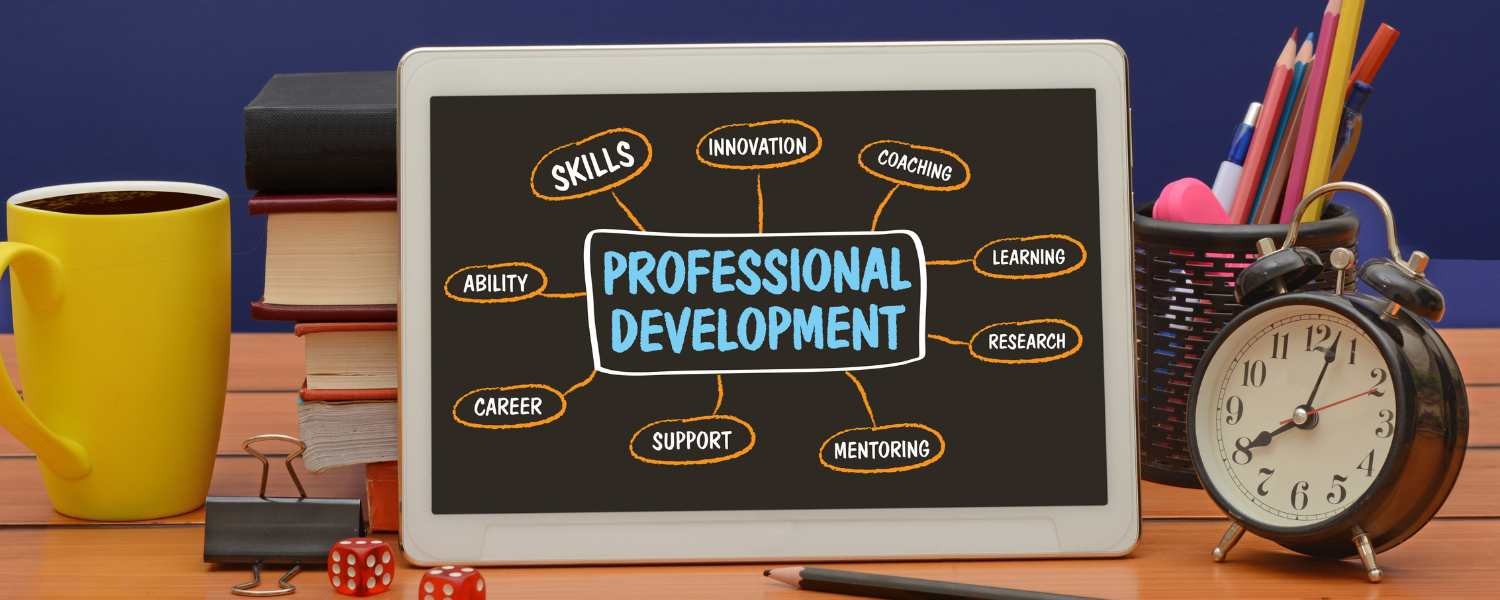Recognized as a cornerstone, employee engagement is not just a buzzword but a fundamental aspect that shapes employees' experiences and plays a pivotal role in HR strategies. As organisations increasingly realise that engaged employees are more than just contributors—they drive innovation, collaboration, and heightened productivity—HR professionals navigate the forefront of initiatives designed to nurture and sustain this essential element. In this exploration, we delve into the vital insights that HR must embrace.
We understand that the journey towards a thriving workplace begins with the commitment to fostering genuine, and HR professionals find themselves at the forefront of designing strategies beyond traditional approaches. This series delves into the essential insights that every HR must possess to cultivate a thriving workplace through robust employee engagement initiatives.
From team-building retreats to innovative recognition programs, each facet contributes to a mosaic that not only enhances the professional lives of employees but also fortifies the very foundation of the organisation. As we embark on this exploration, we unveil the significance of activities that transcend routine work tasks, creating a workplace where employees contribute and feel valued and inspired.
 HR professionals often turn to team-building retreats as a potent tool for boosting employee engagement. These retreats offer a unique opportunity for team members to connect outside the constraints of daily tasks, fostering stronger bonds and promoting a collaborative spirit.
To organise a successful retreat, HR should consider the diverse interests and preferences of the team. Tailoring activities that blend fun and purposeful collaboration ensures employees feel engaged and appreciated, ultimately contributing to a positive work culture. Providing a mix of structured team-building exercises, casual interactions, and moments for self-reflection creates a holistic experience that resonates with employees long after the retreat concludes.
HR professionals often turn to team-building retreats as a potent tool for boosting employee engagement. These retreats offer a unique opportunity for team members to connect outside the constraints of daily tasks, fostering stronger bonds and promoting a collaborative spirit.
To organise a successful retreat, HR should consider the diverse interests and preferences of the team. Tailoring activities that blend fun and purposeful collaboration ensures employees feel engaged and appreciated, ultimately contributing to a positive work culture. Providing a mix of structured team-building exercises, casual interactions, and moments for self-reflection creates a holistic experience that resonates with employees long after the retreat concludes.
 Acknowledging and celebrating the contributions of employees through peer recognition awards is a powerful strategy for enhancing employee engagement. HR is pivotal in establishing a robust recognition program by creating transparent nomination processes and meaningful award categories. Regular communication about the importance of recognition fosters a culture of appreciation, boosting morale and reinforcing positive behaviour.
Implementing a fair and accessible awards system ensures that all employees feel valued, irrespective of their role. HR can organise award ceremonies, whether virtual or in person, to publicly honour recipients and inspire others to excel. This intentional focus on peer recognition motivates employees and cultivates a sense of community and shared success.
Acknowledging and celebrating the contributions of employees through peer recognition awards is a powerful strategy for enhancing employee engagement. HR is pivotal in establishing a robust recognition program by creating transparent nomination processes and meaningful award categories. Regular communication about the importance of recognition fosters a culture of appreciation, boosting morale and reinforcing positive behaviour.
Implementing a fair and accessible awards system ensures that all employees feel valued, irrespective of their role. HR can organise award ceremonies, whether virtual or in person, to publicly honour recipients and inspire others to excel. This intentional focus on peer recognition motivates employees and cultivates a sense of community and shared success.
 Lunch and Learn sessions are an effective avenue for continuous learning and employee engagement. HR professionals can curate topics that align with professional development and personal interests. Creating an inclusive atmosphere where employees feel comfortable sharing ideas and asking questions enhances engagement.
By providing nourishing meals during these sessions, HR addresses the intellectual appetite and ensures a physically energised and engaged workforce. The scheduling of these sessions should be considerate of employees' workloads, allowing for a balance between learning, networking, and rejuvenation.
Lunch and Learn sessions are an effective avenue for continuous learning and employee engagement. HR professionals can curate topics that align with professional development and personal interests. Creating an inclusive atmosphere where employees feel comfortable sharing ideas and asking questions enhances engagement.
By providing nourishing meals during these sessions, HR addresses the intellectual appetite and ensures a physically energised and engaged workforce. The scheduling of these sessions should be considerate of employees' workloads, allowing for a balance between learning, networking, and rejuvenation.
 HR's role in organising mentorship programs is pivotal in nurturing a culture of growth and connection within the organisation. By pairing experienced mentors with mentees seeking guidance, HR fosters a supportive environment where knowledge is shared, and career development flourishes.
Establishing clear program objectives, guidelines, and regular check-ins ensures the success of the mentorship initiative. HR should actively seek feedback from participants to continually fine-tune the program. In facilitating mentorship connections, HR contributes to individual employee development and reinforces a sense of community and shared success, fostering a highly engaged workforce.
HR's role in organising mentorship programs is pivotal in nurturing a culture of growth and connection within the organisation. By pairing experienced mentors with mentees seeking guidance, HR fosters a supportive environment where knowledge is shared, and career development flourishes.
Establishing clear program objectives, guidelines, and regular check-ins ensures the success of the mentorship initiative. HR should actively seek feedback from participants to continually fine-tune the program. In facilitating mentorship connections, HR contributes to individual employee development and reinforces a sense of community and shared success, fostering a highly engaged workforce.
 Employee Appreciation Day is pivotal for HR professionals to reinforce a positive work culture. HR can organise personalised appreciation activities, such as personalised notes, recognition ceremonies, or small tokens of gratitude.
Engaging employees in the planning process can also foster a sense of involvement and community. By acknowledging individual and team accomplishments, HR contributes to a culture of appreciation that significantly boosts employee engagement.
Employee Appreciation Day is pivotal for HR professionals to reinforce a positive work culture. HR can organise personalised appreciation activities, such as personalised notes, recognition ceremonies, or small tokens of gratitude.
Engaging employees in the planning process can also foster a sense of involvement and community. By acknowledging individual and team accomplishments, HR contributes to a culture of appreciation that significantly boosts employee engagement.
 Implementing wellness challenges is a proactive approach to promote a healthy work-life balance. HR can spearhead initiatives like step challenges, healthy eating programs, or mindfulness sessions.
Providing resources and incentives for participation, coupled with friendly competition, improves physical well-being and nurtures a sense of camaraderie among employees. As a result, the workplace becomes a space where employees feel supported in their overall well-being, contributing to higher levels of engagement.
Implementing wellness challenges is a proactive approach to promote a healthy work-life balance. HR can spearhead initiatives like step challenges, healthy eating programs, or mindfulness sessions.
Providing resources and incentives for participation, coupled with friendly competition, improves physical well-being and nurtures a sense of camaraderie among employees. As a result, the workplace becomes a space where employees feel supported in their overall well-being, contributing to higher levels of engagement.
 HR professionals play a pivotal role in establishing and communicating flexible work policies. Offering remote work, flexible hours, or compressed workweeks can boost morale and job satisfaction. HR should ensure that these policies align with organisational goals while providing the autonomy that employees crave.
By adapting to the evolving needs of the workforce, HR fosters an environment where employees feel trusted and valued, positively impacting their engagement levels.
HR professionals play a pivotal role in establishing and communicating flexible work policies. Offering remote work, flexible hours, or compressed workweeks can boost morale and job satisfaction. HR should ensure that these policies align with organisational goals while providing the autonomy that employees crave.
By adapting to the evolving needs of the workforce, HR fosters an environment where employees feel trusted and valued, positively impacting their engagement levels.
 Skill development workshops organised by HR foster a culture of continuous learning. HR can identify skill gaps through regular assessments and curate workshops aligning with individual and organisational development needs.
Providing accessible learning resources, mentorship opportunities, and recognition for skill acquisition contributes to a sense of professional growth. As employees feel invested in their career progression, their engagement naturally rises, benefiting both the individual and the organisation.
Skill development workshops organised by HR foster a culture of continuous learning. HR can identify skill gaps through regular assessments and curate workshops aligning with individual and organisational development needs.
Providing accessible learning resources, mentorship opportunities, and recognition for skill acquisition contributes to a sense of professional growth. As employees feel invested in their career progression, their engagement naturally rises, benefiting both the individual and the organisation.
9. Coffee Chat Circles for Enhanced Employee Engagement
To foster a culture of employee engagement, Coffee Chat Circles provides a relaxed yet purposeful environment for team members to connect personally and professionally. HR professionals can spearhead this initiative by organising regular coffee sessions in person or virtually, where employees from various departments come together to share experiences, insights, and ideas.
By facilitating these informal gatherings, HR can create opportunities for relationship-building and cross-functional collaboration, ultimately contributing to a more cohesive and engaged workforce.
 Especially in remote work, organising Virtual Happy Hours is a creative and effective way to enhance employee engagement. HR can lead these events, incorporate interactive games-themed activities, or invite guest speakers to share inspirational stories.
By infusing an element of fun into virtual interactions, HR professionals can strengthen team bonds, alleviate stress, and contribute to a positive work culture. These events also provide an avenue for recognizing achievements and celebrating shared successes, fostering a sense of unity among team members.
Especially in remote work, organising Virtual Happy Hours is a creative and effective way to enhance employee engagement. HR can lead these events, incorporate interactive games-themed activities, or invite guest speakers to share inspirational stories.
By infusing an element of fun into virtual interactions, HR professionals can strengthen team bonds, alleviate stress, and contribute to a positive work culture. These events also provide an avenue for recognizing achievements and celebrating shared successes, fostering a sense of unity among team members.
 Employee of the Month Celebrations are a powerful tool for recognizing and appreciating outstanding contributions within the organisation. HR is pivotal in designing and implementing a transparent and fair recognition system.
By regularly honouring top performers, HR boosts individual morale and sets a benchmark for others to strive toward excellence. Communicating the criteria for selection and involving the entire team in the celebration process ensures that the recognition program becomes a meaningful and integral part of the company's employee engagement strategy.
Employee of the Month Celebrations are a powerful tool for recognizing and appreciating outstanding contributions within the organisation. HR is pivotal in designing and implementing a transparent and fair recognition system.
By regularly honouring top performers, HR boosts individual morale and sets a benchmark for others to strive toward excellence. Communicating the criteria for selection and involving the entire team in the celebration process ensures that the recognition program becomes a meaningful and integral part of the company's employee engagement strategy.
 To break down silos and encourage collaboration, HR can organise Cross-Departmental Collaboration Events. These events provide a platform for employees from different departments to share insights, work on common projects, and understand each other's roles. By fostering a spirit of unity and cooperation, HR contributes to a more holistic approach to employee engagement.
Planning workshops, team-building activities, or collaborative projects that require input from various departments can create a sense of interconnectedness, promoting a culture of mutual support and shared success.
To break down silos and encourage collaboration, HR can organise Cross-Departmental Collaboration Events. These events provide a platform for employees from different departments to share insights, work on common projects, and understand each other's roles. By fostering a spirit of unity and cooperation, HR contributes to a more holistic approach to employee engagement.
Planning workshops, team-building activities, or collaborative projects that require input from various departments can create a sense of interconnectedness, promoting a culture of mutual support and shared success.
 Casual Dress Days provide a refreshing break from the usual office attire, fostering a relaxed and comfortable atmosphere. As an HR professional, organising Casual Dress Days involves clear communication and alignment with company culture.
Establish guidelines to ensure appropriateness and communicate these expectations transparently to employees. Encourage participation and creativity while emphasising the importance of maintaining professionalism. This simple yet effective employee engagement activity promotes a sense of camaraderie and allows individuals to express themselves, contributing positively to the overall workplace environment.
Casual Dress Days provide a refreshing break from the usual office attire, fostering a relaxed and comfortable atmosphere. As an HR professional, organising Casual Dress Days involves clear communication and alignment with company culture.
Establish guidelines to ensure appropriateness and communicate these expectations transparently to employees. Encourage participation and creativity while emphasising the importance of maintaining professionalism. This simple yet effective employee engagement activity promotes a sense of camaraderie and allows individuals to express themselves, contributing positively to the overall workplace environment.
 Initiating a Book Club for Professional Development can be a powerful tool for employee engagement. HR professionals can start by selecting relevant, thought-provoking books that align with the organisation's goals and values. Facilitate the club by scheduling regular meetings, encouraging open discussions, and fostering a culture of continuous learning.
Consider providing resources and support for participants, such as access to the chosen books and discussion guides. This activity promotes personal and professional growth and strengthens connections among team members who share a common interest in learning and development.
Initiating a Book Club for Professional Development can be a powerful tool for employee engagement. HR professionals can start by selecting relevant, thought-provoking books that align with the organisation's goals and values. Facilitate the club by scheduling regular meetings, encouraging open discussions, and fostering a culture of continuous learning.
Consider providing resources and support for participants, such as access to the chosen books and discussion guides. This activity promotes personal and professional growth and strengthens connections among team members who share a common interest in learning and development.
 Organising Mindfulness and Meditation Sessions is a proactive approach to employee engagement, focusing on mental and emotional well-being. HR professionals can collaborate with experts or hire instructors to lead sessions that cater to various levels of experience.
Communicate the benefits of mindfulness, such as stress reduction and increased focus, to encourage participation. Provide a dedicated space and time for these sessions, allowing employees to recharge and enhance their overall work experience. Mindfulness promotes a healthy work-life balance and contributes to a positive, engaged workforce.
Organising Mindfulness and Meditation Sessions is a proactive approach to employee engagement, focusing on mental and emotional well-being. HR professionals can collaborate with experts or hire instructors to lead sessions that cater to various levels of experience.
Communicate the benefits of mindfulness, such as stress reduction and increased focus, to encourage participation. Provide a dedicated space and time for these sessions, allowing employees to recharge and enhance their overall work experience. Mindfulness promotes a healthy work-life balance and contributes to a positive, engaged workforce.
 Engaging employees through Company-wide Volunteer Initiatives benefits the community and strengthens team bonds and employee morale. HR professionals are crucial in coordinating volunteer activities by identifying opportunities, aligning them with the company's values, and organising logistics.
Encourage employee participation by highlighting the positive impact of their contributions. Emphasise giving back and creating a supportive environment that fosters a sense of purpose and community. By integrating volunteerism into the company culture, HR can enhance employee engagement and contribute to a positive corporate image.
Engaging employees through Company-wide Volunteer Initiatives benefits the community and strengthens team bonds and employee morale. HR professionals are crucial in coordinating volunteer activities by identifying opportunities, aligning them with the company's values, and organising logistics.
Encourage employee participation by highlighting the positive impact of their contributions. Emphasise giving back and creating a supportive environment that fosters a sense of purpose and community. By integrating volunteerism into the company culture, HR can enhance employee engagement and contribute to a positive corporate image.
 Incorporating regular Innovation Brainstorming Sessions is a strategic move for any HR professional in the quest for heightened employee engagement. These sessions serve as a platform where diverse ideas flourish, encouraging creative thinking among employees. HR should establish an inclusive environment to organise a successful session, ensuring all team members feel comfortable sharing their thoughts.
Provide ample exploration and idea generation time, allowing employees to express themselves freely. Moreover, consider cross-departmental collaboration to bring varied perspectives into the mix, enhancing the overall innovation quotient within the organisation. By championing these sessions, HR contributes significantly to a culture that values and nurtures creativity, ultimately boosting employee engagement.
Incorporating regular Innovation Brainstorming Sessions is a strategic move for any HR professional in the quest for heightened employee engagement. These sessions serve as a platform where diverse ideas flourish, encouraging creative thinking among employees. HR should establish an inclusive environment to organise a successful session, ensuring all team members feel comfortable sharing their thoughts.
Provide ample exploration and idea generation time, allowing employees to express themselves freely. Moreover, consider cross-departmental collaboration to bring varied perspectives into the mix, enhancing the overall innovation quotient within the organisation. By championing these sessions, HR contributes significantly to a culture that values and nurtures creativity, ultimately boosting employee engagement.
 Offering Professional Development Stipends is a powerful strategy for HR to demonstrate the organisation's commitment to the growth of its employees. By allocating funds for educational pursuits, HR empowers individuals to enhance their skills and stay abreast of industry trends. To implement this initiative effectively, HR should establish clear guidelines for stipend allocation, ensuring fairness and equal opportunities.
Regularly communicate the availability of these stipends and provide support in identifying suitable courses or certifications. This investment in professional development not only enhances the skill set of employees but also cultivates a sense of loyalty and engagement as they perceive the organisation as a partner in their career advancement.
Offering Professional Development Stipends is a powerful strategy for HR to demonstrate the organisation's commitment to the growth of its employees. By allocating funds for educational pursuits, HR empowers individuals to enhance their skills and stay abreast of industry trends. To implement this initiative effectively, HR should establish clear guidelines for stipend allocation, ensuring fairness and equal opportunities.
Regularly communicate the availability of these stipends and provide support in identifying suitable courses or certifications. This investment in professional development not only enhances the skill set of employees but also cultivates a sense of loyalty and engagement as they perceive the organisation as a partner in their career advancement.
 In the realm of employee engagement, prioritising well-being is paramount. Introducing Fitness Classes or Gym Memberships is a proactive approach for HR to foster a healthy work environment. Physical activity has a direct correlation with improved mood and productivity. HR should collaborate with fitness centres or organise on-site classes, making it convenient for employees to prioritise their health.
Additionally, promoting a culture that values breaks for physical activity during the workday contributes to overall employee satisfaction and strategies. By championing wellness initiatives, HR is crucial in creating an environment where employees thrive personally and professionally.
In the realm of employee engagement, prioritising well-being is paramount. Introducing Fitness Classes or Gym Memberships is a proactive approach for HR to foster a healthy work environment. Physical activity has a direct correlation with improved mood and productivity. HR should collaborate with fitness centres or organise on-site classes, making it convenient for employees to prioritise their health.
Additionally, promoting a culture that values breaks for physical activity during the workday contributes to overall employee satisfaction and strategies. By championing wellness initiatives, HR is crucial in creating an environment where employees thrive personally and professionally.
 An open-door policy for Employee Feedback is a cornerstone of effective employee engagement. HR professionals should actively communicate the accessibility of leadership and ensure that employees feel comfortable sharing their thoughts and concerns. Establishing a formal feedback mechanism, such as regular surveys or suggestion boxes, provides structured channels for expression.
HR should consistently communicate feedback outcomes and, where feasible, implement changes based on employee input. This enhances the sense of belonging and reinforces the idea that every employee's voice matters. By implementing an Open Door Policy, HR contributes significantly to building a transparent and communicative culture that fuels employee engagement.
An open-door policy for Employee Feedback is a cornerstone of effective employee engagement. HR professionals should actively communicate the accessibility of leadership and ensure that employees feel comfortable sharing their thoughts and concerns. Establishing a formal feedback mechanism, such as regular surveys or suggestion boxes, provides structured channels for expression.
HR should consistently communicate feedback outcomes and, where feasible, implement changes based on employee input. This enhances the sense of belonging and reinforces the idea that every employee's voice matters. By implementing an Open Door Policy, HR contributes significantly to building a transparent and communicative culture that fuels employee engagement.
1. Team-Building Retreat
 HR professionals often turn to team-building retreats as a potent tool for boosting employee engagement. These retreats offer a unique opportunity for team members to connect outside the constraints of daily tasks, fostering stronger bonds and promoting a collaborative spirit.
To organise a successful retreat, HR should consider the diverse interests and preferences of the team. Tailoring activities that blend fun and purposeful collaboration ensures employees feel engaged and appreciated, ultimately contributing to a positive work culture. Providing a mix of structured team-building exercises, casual interactions, and moments for self-reflection creates a holistic experience that resonates with employees long after the retreat concludes.
HR professionals often turn to team-building retreats as a potent tool for boosting employee engagement. These retreats offer a unique opportunity for team members to connect outside the constraints of daily tasks, fostering stronger bonds and promoting a collaborative spirit.
To organise a successful retreat, HR should consider the diverse interests and preferences of the team. Tailoring activities that blend fun and purposeful collaboration ensures employees feel engaged and appreciated, ultimately contributing to a positive work culture. Providing a mix of structured team-building exercises, casual interactions, and moments for self-reflection creates a holistic experience that resonates with employees long after the retreat concludes.
2. Peer Recognition Awards
 Acknowledging and celebrating the contributions of employees through peer recognition awards is a powerful strategy for enhancing employee engagement. HR is pivotal in establishing a robust recognition program by creating transparent nomination processes and meaningful award categories. Regular communication about the importance of recognition fosters a culture of appreciation, boosting morale and reinforcing positive behaviour.
Implementing a fair and accessible awards system ensures that all employees feel valued, irrespective of their role. HR can organise award ceremonies, whether virtual or in person, to publicly honour recipients and inspire others to excel. This intentional focus on peer recognition motivates employees and cultivates a sense of community and shared success.
Acknowledging and celebrating the contributions of employees through peer recognition awards is a powerful strategy for enhancing employee engagement. HR is pivotal in establishing a robust recognition program by creating transparent nomination processes and meaningful award categories. Regular communication about the importance of recognition fosters a culture of appreciation, boosting morale and reinforcing positive behaviour.
Implementing a fair and accessible awards system ensures that all employees feel valued, irrespective of their role. HR can organise award ceremonies, whether virtual or in person, to publicly honour recipients and inspire others to excel. This intentional focus on peer recognition motivates employees and cultivates a sense of community and shared success.
3. Lunch and Learn Sessions
 Lunch and Learn sessions are an effective avenue for continuous learning and employee engagement. HR professionals can curate topics that align with professional development and personal interests. Creating an inclusive atmosphere where employees feel comfortable sharing ideas and asking questions enhances engagement.
By providing nourishing meals during these sessions, HR addresses the intellectual appetite and ensures a physically energised and engaged workforce. The scheduling of these sessions should be considerate of employees' workloads, allowing for a balance between learning, networking, and rejuvenation.
Lunch and Learn sessions are an effective avenue for continuous learning and employee engagement. HR professionals can curate topics that align with professional development and personal interests. Creating an inclusive atmosphere where employees feel comfortable sharing ideas and asking questions enhances engagement.
By providing nourishing meals during these sessions, HR addresses the intellectual appetite and ensures a physically energised and engaged workforce. The scheduling of these sessions should be considerate of employees' workloads, allowing for a balance between learning, networking, and rejuvenation.
4. Mentorship Programs
 HR's role in organising mentorship programs is pivotal in nurturing a culture of growth and connection within the organisation. By pairing experienced mentors with mentees seeking guidance, HR fosters a supportive environment where knowledge is shared, and career development flourishes.
Establishing clear program objectives, guidelines, and regular check-ins ensures the success of the mentorship initiative. HR should actively seek feedback from participants to continually fine-tune the program. In facilitating mentorship connections, HR contributes to individual employee development and reinforces a sense of community and shared success, fostering a highly engaged workforce.
HR's role in organising mentorship programs is pivotal in nurturing a culture of growth and connection within the organisation. By pairing experienced mentors with mentees seeking guidance, HR fosters a supportive environment where knowledge is shared, and career development flourishes.
Establishing clear program objectives, guidelines, and regular check-ins ensures the success of the mentorship initiative. HR should actively seek feedback from participants to continually fine-tune the program. In facilitating mentorship connections, HR contributes to individual employee development and reinforces a sense of community and shared success, fostering a highly engaged workforce.
5. Employee Appreciation Day
 Employee Appreciation Day is pivotal for HR professionals to reinforce a positive work culture. HR can organise personalised appreciation activities, such as personalised notes, recognition ceremonies, or small tokens of gratitude.
Engaging employees in the planning process can also foster a sense of involvement and community. By acknowledging individual and team accomplishments, HR contributes to a culture of appreciation that significantly boosts employee engagement.
Employee Appreciation Day is pivotal for HR professionals to reinforce a positive work culture. HR can organise personalised appreciation activities, such as personalised notes, recognition ceremonies, or small tokens of gratitude.
Engaging employees in the planning process can also foster a sense of involvement and community. By acknowledging individual and team accomplishments, HR contributes to a culture of appreciation that significantly boosts employee engagement.
6. Wellness Challenges
 Implementing wellness challenges is a proactive approach to promote a healthy work-life balance. HR can spearhead initiatives like step challenges, healthy eating programs, or mindfulness sessions.
Providing resources and incentives for participation, coupled with friendly competition, improves physical well-being and nurtures a sense of camaraderie among employees. As a result, the workplace becomes a space where employees feel supported in their overall well-being, contributing to higher levels of engagement.
Implementing wellness challenges is a proactive approach to promote a healthy work-life balance. HR can spearhead initiatives like step challenges, healthy eating programs, or mindfulness sessions.
Providing resources and incentives for participation, coupled with friendly competition, improves physical well-being and nurtures a sense of camaraderie among employees. As a result, the workplace becomes a space where employees feel supported in their overall well-being, contributing to higher levels of engagement.
7. Flexible Work Schedules
 HR professionals play a pivotal role in establishing and communicating flexible work policies. Offering remote work, flexible hours, or compressed workweeks can boost morale and job satisfaction. HR should ensure that these policies align with organisational goals while providing the autonomy that employees crave.
By adapting to the evolving needs of the workforce, HR fosters an environment where employees feel trusted and valued, positively impacting their engagement levels.
HR professionals play a pivotal role in establishing and communicating flexible work policies. Offering remote work, flexible hours, or compressed workweeks can boost morale and job satisfaction. HR should ensure that these policies align with organisational goals while providing the autonomy that employees crave.
By adapting to the evolving needs of the workforce, HR fosters an environment where employees feel trusted and valued, positively impacting their engagement levels.
8. Skill Development Workshops
 Skill development workshops organised by HR foster a culture of continuous learning. HR can identify skill gaps through regular assessments and curate workshops aligning with individual and organisational development needs.
Providing accessible learning resources, mentorship opportunities, and recognition for skill acquisition contributes to a sense of professional growth. As employees feel invested in their career progression, their engagement naturally rises, benefiting both the individual and the organisation.
Skill development workshops organised by HR foster a culture of continuous learning. HR can identify skill gaps through regular assessments and curate workshops aligning with individual and organisational development needs.
Providing accessible learning resources, mentorship opportunities, and recognition for skill acquisition contributes to a sense of professional growth. As employees feel invested in their career progression, their engagement naturally rises, benefiting both the individual and the organisation.
9. Coffee Chat Circles for Enhanced Employee Engagement
To foster a culture of employee engagement, Coffee Chat Circles provides a relaxed yet purposeful environment for team members to connect personally and professionally. HR professionals can spearhead this initiative by organising regular coffee sessions in person or virtually, where employees from various departments come together to share experiences, insights, and ideas.
By facilitating these informal gatherings, HR can create opportunities for relationship-building and cross-functional collaboration, ultimately contributing to a more cohesive and engaged workforce.
10. Virtual Happy Hours to Boost Employee Morale
 Especially in remote work, organising Virtual Happy Hours is a creative and effective way to enhance employee engagement. HR can lead these events, incorporate interactive games-themed activities, or invite guest speakers to share inspirational stories.
By infusing an element of fun into virtual interactions, HR professionals can strengthen team bonds, alleviate stress, and contribute to a positive work culture. These events also provide an avenue for recognizing achievements and celebrating shared successes, fostering a sense of unity among team members.
Especially in remote work, organising Virtual Happy Hours is a creative and effective way to enhance employee engagement. HR can lead these events, incorporate interactive games-themed activities, or invite guest speakers to share inspirational stories.
By infusing an element of fun into virtual interactions, HR professionals can strengthen team bonds, alleviate stress, and contribute to a positive work culture. These events also provide an avenue for recognizing achievements and celebrating shared successes, fostering a sense of unity among team members.
11. Employee of the Month Celebrations to Recognize Excellence
 Employee of the Month Celebrations are a powerful tool for recognizing and appreciating outstanding contributions within the organisation. HR is pivotal in designing and implementing a transparent and fair recognition system.
By regularly honouring top performers, HR boosts individual morale and sets a benchmark for others to strive toward excellence. Communicating the criteria for selection and involving the entire team in the celebration process ensures that the recognition program becomes a meaningful and integral part of the company's employee engagement strategy.
Employee of the Month Celebrations are a powerful tool for recognizing and appreciating outstanding contributions within the organisation. HR is pivotal in designing and implementing a transparent and fair recognition system.
By regularly honouring top performers, HR boosts individual morale and sets a benchmark for others to strive toward excellence. Communicating the criteria for selection and involving the entire team in the celebration process ensures that the recognition program becomes a meaningful and integral part of the company's employee engagement strategy.
12. Cross-Departmental Collaboration Events for a Unified Workforce
 To break down silos and encourage collaboration, HR can organise Cross-Departmental Collaboration Events. These events provide a platform for employees from different departments to share insights, work on common projects, and understand each other's roles. By fostering a spirit of unity and cooperation, HR contributes to a more holistic approach to employee engagement.
Planning workshops, team-building activities, or collaborative projects that require input from various departments can create a sense of interconnectedness, promoting a culture of mutual support and shared success.
To break down silos and encourage collaboration, HR can organise Cross-Departmental Collaboration Events. These events provide a platform for employees from different departments to share insights, work on common projects, and understand each other's roles. By fostering a spirit of unity and cooperation, HR contributes to a more holistic approach to employee engagement.
Planning workshops, team-building activities, or collaborative projects that require input from various departments can create a sense of interconnectedness, promoting a culture of mutual support and shared success.
13. Casual Dress Days
 Casual Dress Days provide a refreshing break from the usual office attire, fostering a relaxed and comfortable atmosphere. As an HR professional, organising Casual Dress Days involves clear communication and alignment with company culture.
Establish guidelines to ensure appropriateness and communicate these expectations transparently to employees. Encourage participation and creativity while emphasising the importance of maintaining professionalism. This simple yet effective employee engagement activity promotes a sense of camaraderie and allows individuals to express themselves, contributing positively to the overall workplace environment.
Casual Dress Days provide a refreshing break from the usual office attire, fostering a relaxed and comfortable atmosphere. As an HR professional, organising Casual Dress Days involves clear communication and alignment with company culture.
Establish guidelines to ensure appropriateness and communicate these expectations transparently to employees. Encourage participation and creativity while emphasising the importance of maintaining professionalism. This simple yet effective employee engagement activity promotes a sense of camaraderie and allows individuals to express themselves, contributing positively to the overall workplace environment.
14. Book Club for Professional Development
 Initiating a Book Club for Professional Development can be a powerful tool for employee engagement. HR professionals can start by selecting relevant, thought-provoking books that align with the organisation's goals and values. Facilitate the club by scheduling regular meetings, encouraging open discussions, and fostering a culture of continuous learning.
Consider providing resources and support for participants, such as access to the chosen books and discussion guides. This activity promotes personal and professional growth and strengthens connections among team members who share a common interest in learning and development.
Initiating a Book Club for Professional Development can be a powerful tool for employee engagement. HR professionals can start by selecting relevant, thought-provoking books that align with the organisation's goals and values. Facilitate the club by scheduling regular meetings, encouraging open discussions, and fostering a culture of continuous learning.
Consider providing resources and support for participants, such as access to the chosen books and discussion guides. This activity promotes personal and professional growth and strengthens connections among team members who share a common interest in learning and development.
15. Mindfulness and Meditation Sessions
 Organising Mindfulness and Meditation Sessions is a proactive approach to employee engagement, focusing on mental and emotional well-being. HR professionals can collaborate with experts or hire instructors to lead sessions that cater to various levels of experience.
Communicate the benefits of mindfulness, such as stress reduction and increased focus, to encourage participation. Provide a dedicated space and time for these sessions, allowing employees to recharge and enhance their overall work experience. Mindfulness promotes a healthy work-life balance and contributes to a positive, engaged workforce.
Organising Mindfulness and Meditation Sessions is a proactive approach to employee engagement, focusing on mental and emotional well-being. HR professionals can collaborate with experts or hire instructors to lead sessions that cater to various levels of experience.
Communicate the benefits of mindfulness, such as stress reduction and increased focus, to encourage participation. Provide a dedicated space and time for these sessions, allowing employees to recharge and enhance their overall work experience. Mindfulness promotes a healthy work-life balance and contributes to a positive, engaged workforce.
16. Company-wide Volunteer Initiatives
 Engaging employees through Company-wide Volunteer Initiatives benefits the community and strengthens team bonds and employee morale. HR professionals are crucial in coordinating volunteer activities by identifying opportunities, aligning them with the company's values, and organising logistics.
Encourage employee participation by highlighting the positive impact of their contributions. Emphasise giving back and creating a supportive environment that fosters a sense of purpose and community. By integrating volunteerism into the company culture, HR can enhance employee engagement and contribute to a positive corporate image.
Engaging employees through Company-wide Volunteer Initiatives benefits the community and strengthens team bonds and employee morale. HR professionals are crucial in coordinating volunteer activities by identifying opportunities, aligning them with the company's values, and organising logistics.
Encourage employee participation by highlighting the positive impact of their contributions. Emphasise giving back and creating a supportive environment that fosters a sense of purpose and community. By integrating volunteerism into the company culture, HR can enhance employee engagement and contribute to a positive corporate image.
17. Innovation Brainstorming Sessions
 Incorporating regular Innovation Brainstorming Sessions is a strategic move for any HR professional in the quest for heightened employee engagement. These sessions serve as a platform where diverse ideas flourish, encouraging creative thinking among employees. HR should establish an inclusive environment to organise a successful session, ensuring all team members feel comfortable sharing their thoughts.
Provide ample exploration and idea generation time, allowing employees to express themselves freely. Moreover, consider cross-departmental collaboration to bring varied perspectives into the mix, enhancing the overall innovation quotient within the organisation. By championing these sessions, HR contributes significantly to a culture that values and nurtures creativity, ultimately boosting employee engagement.
Incorporating regular Innovation Brainstorming Sessions is a strategic move for any HR professional in the quest for heightened employee engagement. These sessions serve as a platform where diverse ideas flourish, encouraging creative thinking among employees. HR should establish an inclusive environment to organise a successful session, ensuring all team members feel comfortable sharing their thoughts.
Provide ample exploration and idea generation time, allowing employees to express themselves freely. Moreover, consider cross-departmental collaboration to bring varied perspectives into the mix, enhancing the overall innovation quotient within the organisation. By championing these sessions, HR contributes significantly to a culture that values and nurtures creativity, ultimately boosting employee engagement.
18. Professional Development Stipend
 Offering Professional Development Stipends is a powerful strategy for HR to demonstrate the organisation's commitment to the growth of its employees. By allocating funds for educational pursuits, HR empowers individuals to enhance their skills and stay abreast of industry trends. To implement this initiative effectively, HR should establish clear guidelines for stipend allocation, ensuring fairness and equal opportunities.
Regularly communicate the availability of these stipends and provide support in identifying suitable courses or certifications. This investment in professional development not only enhances the skill set of employees but also cultivates a sense of loyalty and engagement as they perceive the organisation as a partner in their career advancement.
Offering Professional Development Stipends is a powerful strategy for HR to demonstrate the organisation's commitment to the growth of its employees. By allocating funds for educational pursuits, HR empowers individuals to enhance their skills and stay abreast of industry trends. To implement this initiative effectively, HR should establish clear guidelines for stipend allocation, ensuring fairness and equal opportunities.
Regularly communicate the availability of these stipends and provide support in identifying suitable courses or certifications. This investment in professional development not only enhances the skill set of employees but also cultivates a sense of loyalty and engagement as they perceive the organisation as a partner in their career advancement.
19. Fitness Classes or Gym Memberships
 In the realm of employee engagement, prioritising well-being is paramount. Introducing Fitness Classes or Gym Memberships is a proactive approach for HR to foster a healthy work environment. Physical activity has a direct correlation with improved mood and productivity. HR should collaborate with fitness centres or organise on-site classes, making it convenient for employees to prioritise their health.
Additionally, promoting a culture that values breaks for physical activity during the workday contributes to overall employee satisfaction and strategies. By championing wellness initiatives, HR is crucial in creating an environment where employees thrive personally and professionally.
In the realm of employee engagement, prioritising well-being is paramount. Introducing Fitness Classes or Gym Memberships is a proactive approach for HR to foster a healthy work environment. Physical activity has a direct correlation with improved mood and productivity. HR should collaborate with fitness centres or organise on-site classes, making it convenient for employees to prioritise their health.
Additionally, promoting a culture that values breaks for physical activity during the workday contributes to overall employee satisfaction and strategies. By championing wellness initiatives, HR is crucial in creating an environment where employees thrive personally and professionally.
20. Open Door Policy for Employee Feedback
 An open-door policy for Employee Feedback is a cornerstone of effective employee engagement. HR professionals should actively communicate the accessibility of leadership and ensure that employees feel comfortable sharing their thoughts and concerns. Establishing a formal feedback mechanism, such as regular surveys or suggestion boxes, provides structured channels for expression.
HR should consistently communicate feedback outcomes and, where feasible, implement changes based on employee input. This enhances the sense of belonging and reinforces the idea that every employee's voice matters. By implementing an Open Door Policy, HR contributes significantly to building a transparent and communicative culture that fuels employee engagement.
An open-door policy for Employee Feedback is a cornerstone of effective employee engagement. HR professionals should actively communicate the accessibility of leadership and ensure that employees feel comfortable sharing their thoughts and concerns. Establishing a formal feedback mechanism, such as regular surveys or suggestion boxes, provides structured channels for expression.
HR should consistently communicate feedback outcomes and, where feasible, implement changes based on employee input. This enhances the sense of belonging and reinforces the idea that every employee's voice matters. By implementing an Open Door Policy, HR contributes significantly to building a transparent and communicative culture that fuels employee engagement.


